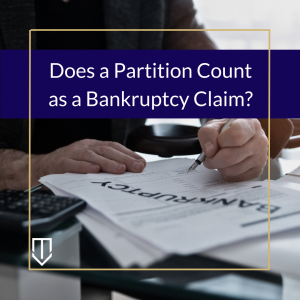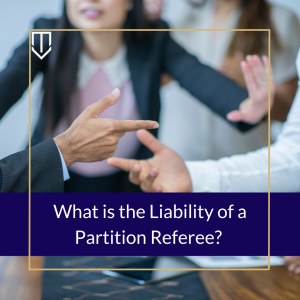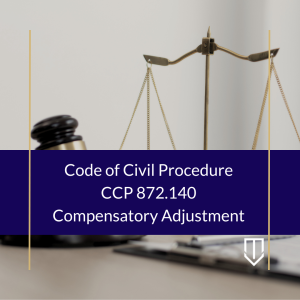 Yes, it can. Partitions and bankruptcy can interact in unusual ways despite the fact that they can often seek the same thing: the sale of a piece of property.
Yes, it can. Partitions and bankruptcy can interact in unusual ways despite the fact that they can often seek the same thing: the sale of a piece of property.
Nonetheless, a co-owner of property filing for bankruptcy either before or during a partition lawsuit immediately raises several issues for the other innocent co-owners. For example, they’ll need to decide whether they can file a bankruptcy claim, and they’ll also need to figure out whether their partition action is subject to the automatic stay provisions of bankruptcy.
As such, in these situations, the right representation can make all the difference. At Underwood Law Firm, our attorneys know the ins and outs of partition actions, and are ready to handle the accompanying litigation that’s sure to result, even in bankruptcy courts.
 California Partition Law Blog
California Partition Law Blog


 Generally, when a trial court orders an interlocutory judgment directing a partition by sale, it can appoint a referee to conduct the sale (CCP § 873.010). However, when a
Generally, when a trial court orders an interlocutory judgment directing a partition by sale, it can appoint a referee to conduct the sale (CCP § 873.010). However, when a  The
The  Partitions sales and trustee sales are two different ways that a property can be sold. A main difference between the two is that a partition sale is ordered and overseen by the court, while a trustee sale is overseen by a third party in relation to foreclosure proceedings. While the third party is not beholden to a court ruling in a trustee sale, they must still follow the procedures outlined in California law.
Partitions sales and trustee sales are two different ways that a property can be sold. A main difference between the two is that a partition sale is ordered and overseen by the court, while a trustee sale is overseen by a third party in relation to foreclosure proceedings. While the third party is not beholden to a court ruling in a trustee sale, they must still follow the procedures outlined in California law.